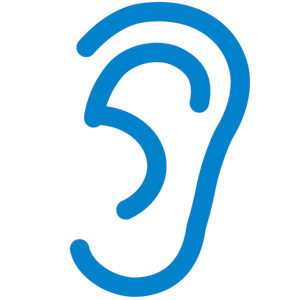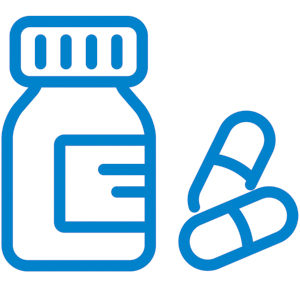Living with Head and Neck Cancer
Living with head and neck cancer
While radiation therapy itself may be painless, it impacts your body in ways that you can’t always see. In order to keep your body strong, here is a list of things to do during treatment:
-

Pay close attention to your oral health.
-

Drink plenty of fluids and eat a healthy diet. Liquid meal replacements can provide extra calories and protein. Some people do better with small, frequent meals rather than one or two large ones.
-

Your doctor may suggest a feeding tube if your mouth and throat are too sore to chew and swallow. This will help you get proper nutrition, a key part of your recovery.
-

Listen to your body. Don’t push yourself too hard, and rest when you’re tired. You will probably be sleeping more than normal, and that’s okay.
-

Be kind to the skin near your treatment area. Wash the area with mild soap and water, and do not put hot or cold packs on the skin. Contact your MRO care team before using lotions or ointments.
-

Find a support group or seek out help to manage the stress that comes with cancer treatment and a cancer diagnosis.
-

Make sure to tell your doctor about any medicines or supplements you take to ensure they are safe to use during treatment.
-

Follow your doctor’s orders and contact your MRO care team with any questions.
Life after treatment
 Follow-up care varies from patient to patient. Head and neck cancers can present specific challenges because they affect speech, eating, and drinking. You may experience dry mouth or changes in taste, swallowing and digestion.
Follow-up care varies from patient to patient. Head and neck cancers can present specific challenges because they affect speech, eating, and drinking. You may experience dry mouth or changes in taste, swallowing and digestion.
After treatment, you’ll have follow-up visits with your MRO radiation oncologist and the doctor who referred you to MRO, especially in the first few months after treatment, to make sure there is no progression or recurrence. Regular follow-up care is very important after treatment for head and neck cancer to make sure that the cancer has not returned and that a second primary (new) cancer has not developed. During this time, it’s important to report any new symptoms to your doctor right away, so the cause can be found and treated.
Depending on the location of the cancer and the type of treatment, rehabilitation may include physical therapy, dietary counseling, speech therapy, and reconstructive and plastic surgery to rebuild bones or tissues.
Your MRO care team may also recommend home care, occupational or vocational therapy, pain management, physical therapy and/or participation in support groups.
For more information, visit our resources page.